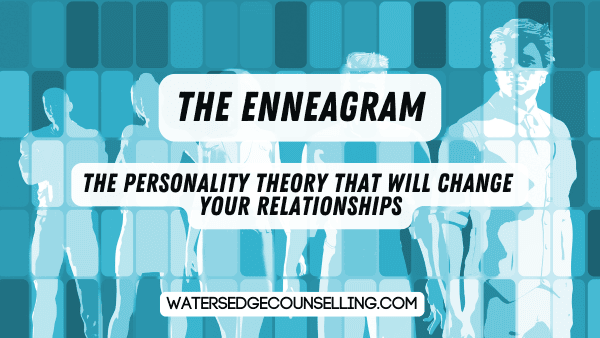
There are some people we just ‘click’ with. Call it friendship or familiarity, but we understand them on a deeper level. Who are those people in your life? This happens because we are like minded and have a similar world view. Or, because we know people like them and understand how they work from lived experience.
Then there are people that make no sense to us. No matter how much time you spend together, you can’t find a point of connection. Or worse, you irritate each other and your personalities clash. They remind you of someone in your life who hurt you, or seem to work from a different set of values.
It’s human nature to seek comfort, and therefore avoid people with these differences – unless you enjoy conflict of course, but more on later. However, it’s not always possible. And it’s not necessarily heathy. If we want to be emotionally mature, we need to empathise with people who are different to us. And inevitably, we will find these differences in our family, our colleagues at work, or with acquaintances.
How to find common ground
So how do we find common ground with people we don’t click with, and especially with our loved ones when we have a disagreement? We understand their motivations. And that starts by knowing what motivates you.
Enter The Enneagram, a personality theory that helps us to understand the motivations, strengths and weaknesses of each other. We have used it as a tool in therapy for years, and it may just be what you need to find common ground in your relationships.
The Enneagram is a personality theory with origins stemming from Christian monks and mystics who lived during 1-5 AD. Most commonly used in spiritual direction practices, the theory divides humanity into nine personality types:
Type 1 (The Reformer), Type 2 (The Helper), Type 3 (The Achiever), Type 4 (The Romantic), Type 5 (The Observer), Type 6 (The Loyalist), Type 7 (The Adventurer), Type 8 (The Challenger) and to Type 9 (The Peacemaker).
The Enneagram enables people to better understand their motivation, values and communication style. A healthy and well-rounded understanding of your type will highlight your strengths and weaknesses, allowing you to progressively become your truest self, free of insecurities and unhealthy habits.
In the same way, understanding the other personality types – often by doing the Enneagram with a friend or partner, you can see the world from a different point of view. This can help you to build stronger and more mature relationships with the people you love.
How to understand our differences
For people who are just trying to cope with differences in personality with extended family or a colleague at work, the Enneagram is a useful way to identify healthy strategies for connection or simply coping. You won’t necessarily become best friends, but you can learn about their basic motivations, how to best speak to them, and what it looks like to show them respect so you receive it in turn.
Want to get started? We have shared our favorite Enneagram resources here. You can also take an online test here.
Here are the Nine Types. See which ones you resonate with the most. Want some more help? We have blogged about how to find your Enneagram Type here.
Type 1: The Perfectionist/ The Reformer
Characteristics: Charismatic leaders with strong convictions and sense of integrity
Strengths: Persistent, dedicated, loyal and visionary
Weaknesses: Self critical, driven by anger, lacking boundaries, perfectionist
Motivation: To do what is ‘right’
Type 2: The Helper
Characteristics: Generous and nurturing caregivers
Strengths: Sensitive, outward focused, faithful
Weaknesses: Overwhelmed by expectation, feeling unworthy, compulsive
Motivation: To be loved
Type 3: The Achiever
Characteristics: Confident, driven and appear put together
Strengths: Committed to self improvement, hard worker, self assured
Weaknesses: Narcissistic, anxious, lack introspection
Motivation: To be successful
Type 4: The Individualist/ The Romantic
Characteristics: Creative, unique individuals
Strengths: Authentic, self aware, creators of beauty, committed
Weaknesses: Disingenuine, critical, jealous
Motivation: To be special
Type 5: The Investigator/ The Observer
Characteristics: Objective analytical thinkers and learners
Strengths: Quiet strength, perceptive, passionate about their interests
Weaknesses: Lack of emotions, out of touch, contemptuous
Motivation: To possess knowledge
Type 6: The Loyalist/ The Skeptic
Characteristics: Committed and trustworthy friends
Strengths: Intelligent, courageous, analytical thinking
Weaknesses: Self doubting, anxious, reactive, needs approval
Motivation: To be safe
Type 7: The Enthusiast/ The Adventurer
Characteristics: Optimistic and fun loving
Strengths: Friendly, positive, forward thinking, courageous
Weaknesses: Ignore pain, fear of rejection, fear of being alone, self deception
Motivation: To feel happy and avoid pain
Type 8: The Challenger
Characteristics: Powerful and passionate leaders who aren’t afraid of conflict
Strengths: Energetic, empowering, trust worthy and adaptable
Weaknesses: Intimidating, lack of awareness to nurture
Motivation: To be strong and in control
Type 9: The Peacemaker
Characteristics: Grounded and easy going
Strengths: Accepting, creative, resilient and dedicated
Weaknesses: Avoidance, procrastination, manipulation
Motivation: To be at peace
